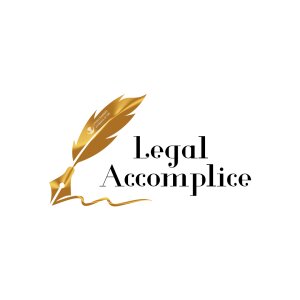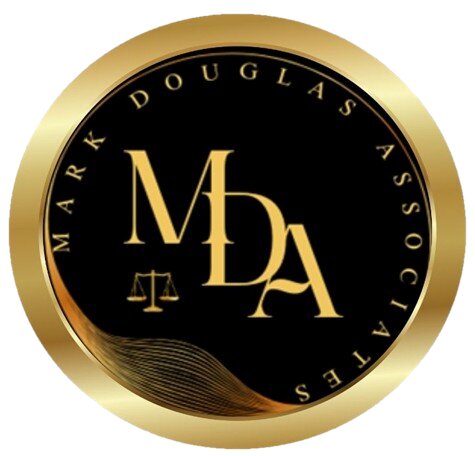Best Mortgage Lawyers in Montego Bay
Share your needs with us, get contacted by law firms.
Free. Takes 2 min.
Free Guide to Hiring a Real Estate Lawyer
List of the best lawyers in Montego Bay, Jamaica
About Mortgage Law in Montego Bay, Jamaica
Mortgages in Montego Bay, Jamaica, refer to the legal arrangements through which a lender, usually a bank or mortgage company, lends money to a borrower for the purchase of real estate, with the property serving as security for the loan. This process involves formal agreements that comply with Jamaican property laws. Mortgages are a crucial aspect of property ownership, offering a means for individuals to acquire homes or investment properties while arranging for repayment over several years. The legal framework in Jamaica ensures protection for both lenders and borrowers, fostering a stable real estate environment within Montego Bay and beyond.
Why You May Need a Lawyer
Engaging a lawyer when dealing with mortgages in Montego Bay can be crucial in several situations. Firstly, a lawyer can offer guidance through the complex paperwork involved in obtaining a mortgage, ensuring all documentation complies with local laws. Secondly, if there are disagreements during the mortgage tenure, such as payment disputes or foreclosure threats, a lawyer can provide essential advice and representation. Additionally, if you wish to refinance or adjust the terms of your mortgage, legal assistance can help navigate the contractual complexities. Ultimately, a lawyer can safeguard your interests, helping manage risks effectively.
Local Laws Overview
The legal framework governing mortgages in Montego Bay, Jamaica, is underpinned by the country's Conveyancing Act and Registered Land Act. Key aspects of these laws relevant to mortgages include the registration of mortgage deeds, which is mandatory to establish legal security over the property. Interest rates for mortgages are regulated to protect consumers, and there are specific procedures and protocols in place in the event of foreclosure or default by the borrower. The Jamaican legal system also encompasses regulations concerning the transfer of properties, ensuring transparency and fairness in real estate transactions.
Frequently Asked Questions
What is the process of obtaining a mortgage in Montego Bay?
To obtain a mortgage, you typically need to apply with a bank or mortgage lender, submit financial documents, and undergo a credit check. If approved, you'll receive a loan offer outlining terms and conditions, which, once accepted, involves signing a mortgage deed.
Are there specific eligibility criteria for getting a mortgage in Jamaica?
Yes, lenders generally evaluate your income, credit history, employment stability, and the value of the property you intend to purchase. Each lender may have additional specific requirements.
Can foreigners obtain a mortgage in Montego Bay?
Foreigners can obtain mortgages in Jamaica; however, the process may differ slightly, with some banks requiring additional documentation or imposing stricter lending criteria.
What is the typical interest rate for mortgages in Jamaica?
Interest rates can vary depending on the lender and the type of mortgage product. As of 2023, typical rates range from 6% to 9% but can fluctuate based on economic conditions.
What happens if I default on my mortgage payments?
If you default, the lender may initiate foreclosure proceedings to sell the property and recover the remaining loan balance. It's advisable to communicate with your lender to explore alternative repayment arrangements first.
How is a mortgage registered in Jamaica?
A mortgage is registered by submitting the executed mortgage deed to the National Land Agency (NLA). This registration creates a legal charge on the property, giving the lender security over the real estate.
Can I refinance my mortgage?
Yes, refinancing is possible and may provide more favorable terms or interest rates. This process typically involves discharging the old mortgage and registering a new one.
Are there any government incentives for first-time homebuyers?
The Jamaican government occasionally offers programs to assist first-time homebuyers, including reduced interest rates or subsidized loans through the National Housing Trust (NHT).
What should I do before committing to a mortgage?
Conduct thorough research, consult with a legal expert, understand the terms involved, and assess your financial stability to ensure you can sustain mortgage repayments over time.
Is it necessary to have mortgage insurance in Jamaica?
While not mandatory, some lenders might require mortgage insurance to protect against the risk of borrower default, especially for high loan-to-value (LTV) mortgages.
Additional Resources
Several resources and organizations can provide guidance and assistance related to mortgages in Montego Bay:
The National Housing Trust (NHT): Offers mortgage services and special programs for first-time homebuyers.
The National Land Agency (NLA): Handles land registration and can provide legal information on property transactions.
The Bank of Jamaica: Offers insights into financial regulations and the state of the housing market.
Next Steps
If you require legal assistance with mortgages, consider the following steps:
1. Research and identify reputable law firms in Montego Bay that specialize in property and mortgage law.
2. Schedule consultations to discuss your case, ensuring you select a lawyer with whom you feel comfortable.
3. Gather all necessary documentation related to your mortgage or property transaction to facilitate your consultations.
4. Consider seeking advice from the resources and organizations listed above for additional support and information.
Lawzana helps you find the best lawyers and law firms in Montego Bay through a curated and pre-screened list of qualified legal professionals. Our platform offers rankings and detailed profiles of attorneys and law firms, allowing you to compare based on practice areas, including Mortgage, experience, and client feedback.
Each profile includes a description of the firm's areas of practice, client reviews, team members and partners, year of establishment, spoken languages, office locations, contact information, social media presence, and any published articles or resources. Most firms on our platform speak English and are experienced in both local and international legal matters.
Get a quote from top-rated law firms in Montego Bay, Jamaica — quickly, securely, and without unnecessary hassle.
Disclaimer:
The information provided on this page is for general informational purposes only and does not constitute legal advice. While we strive to ensure the accuracy and relevance of the content, legal information may change over time, and interpretations of the law can vary. You should always consult with a qualified legal professional for advice specific to your situation.
We disclaim all liability for actions taken or not taken based on the content of this page. If you believe any information is incorrect or outdated, please contact us, and we will review and update it where appropriate.













